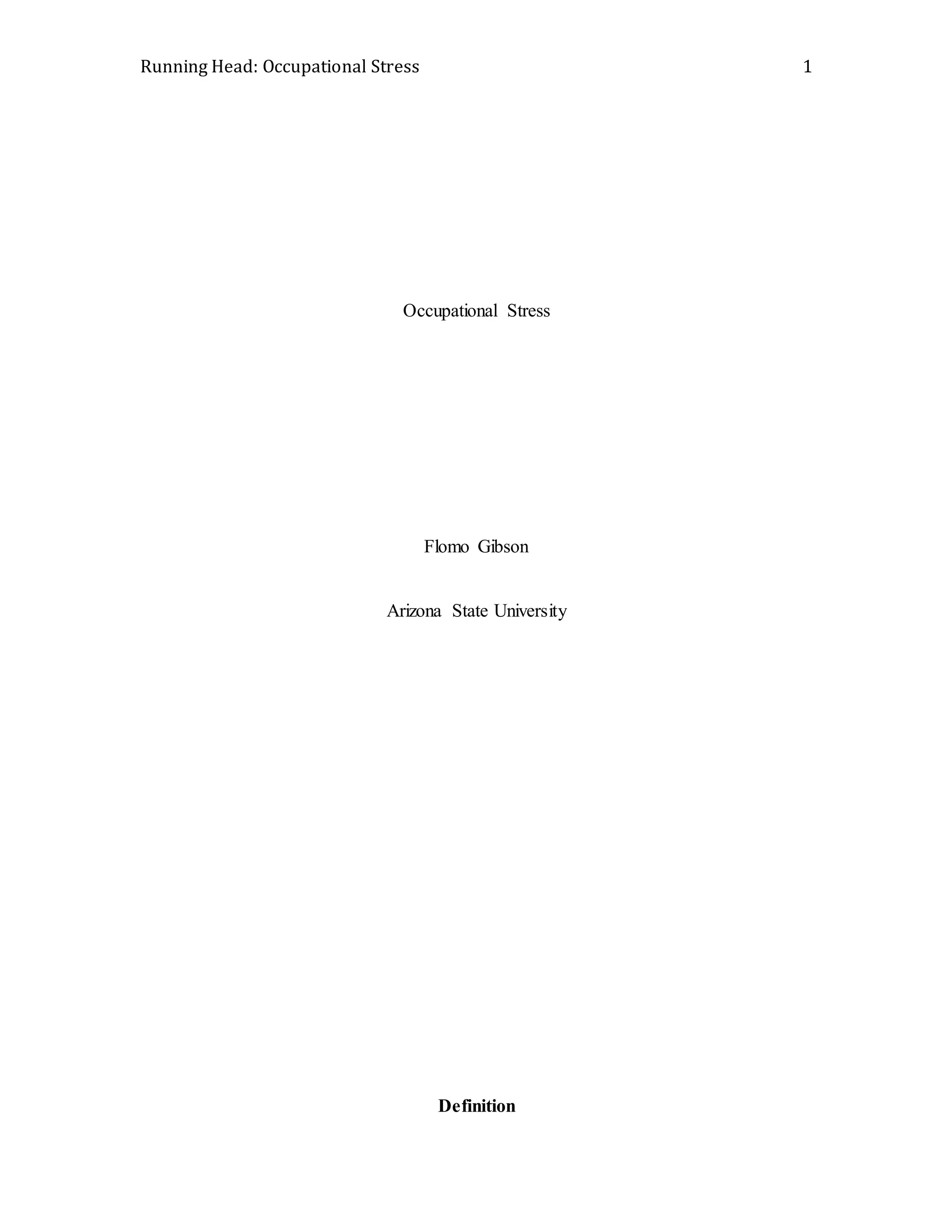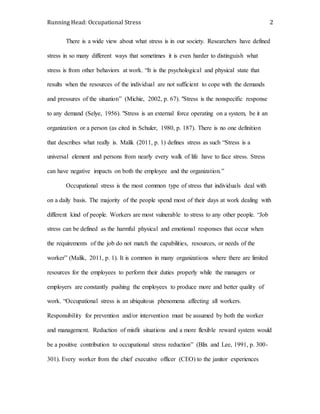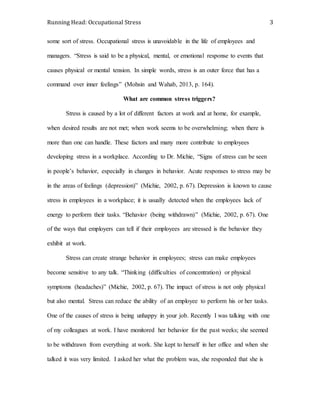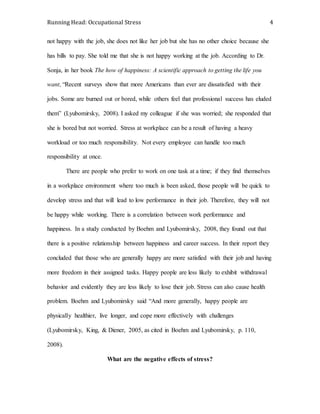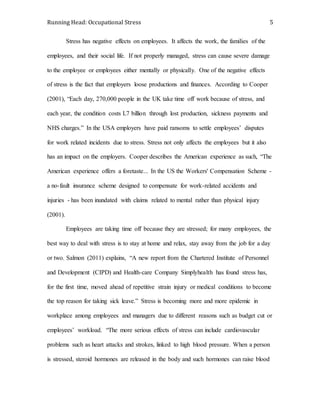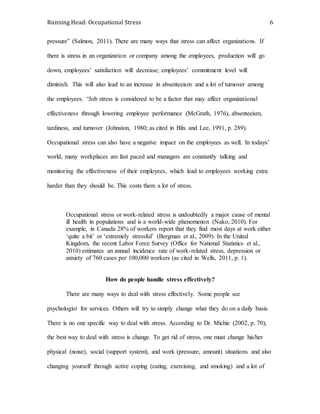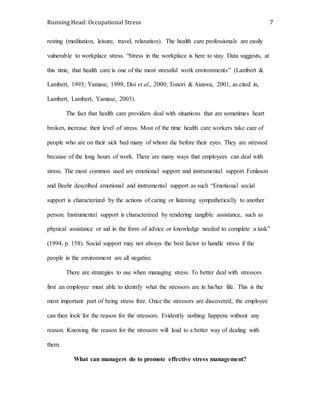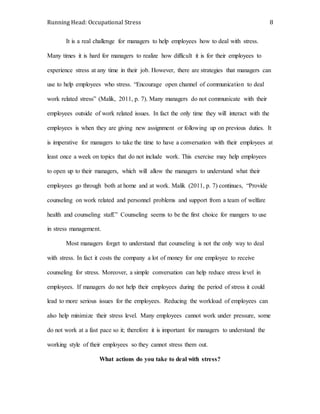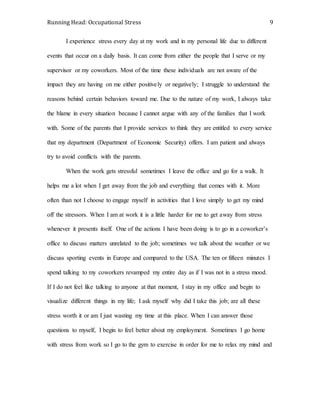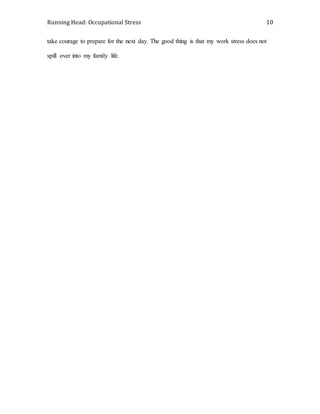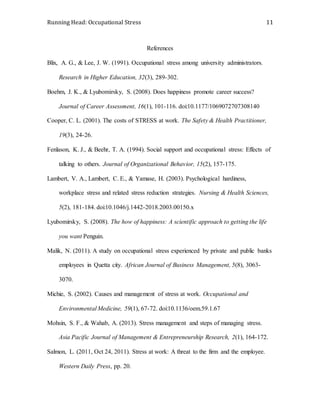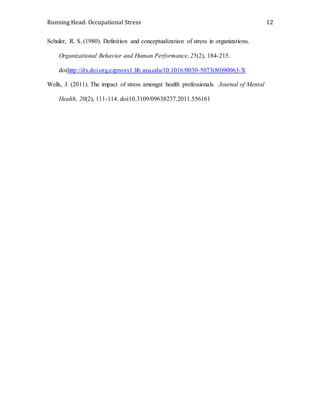This document discusses occupational stress, including its definition, causes, effects, and strategies for effective management. It defines occupational stress as stress experienced in the workplace that results from poor job fit or demands exceeding resources. Common stress triggers include heavy workloads, lack of support, and job dissatisfaction. Negative effects of stress include increased absenteeism, health issues, and reduced productivity and job performance. Effective stress management involves identifying stressors, open communication, counseling, workload adjustments, and engaging in relaxing activities outside of work.
